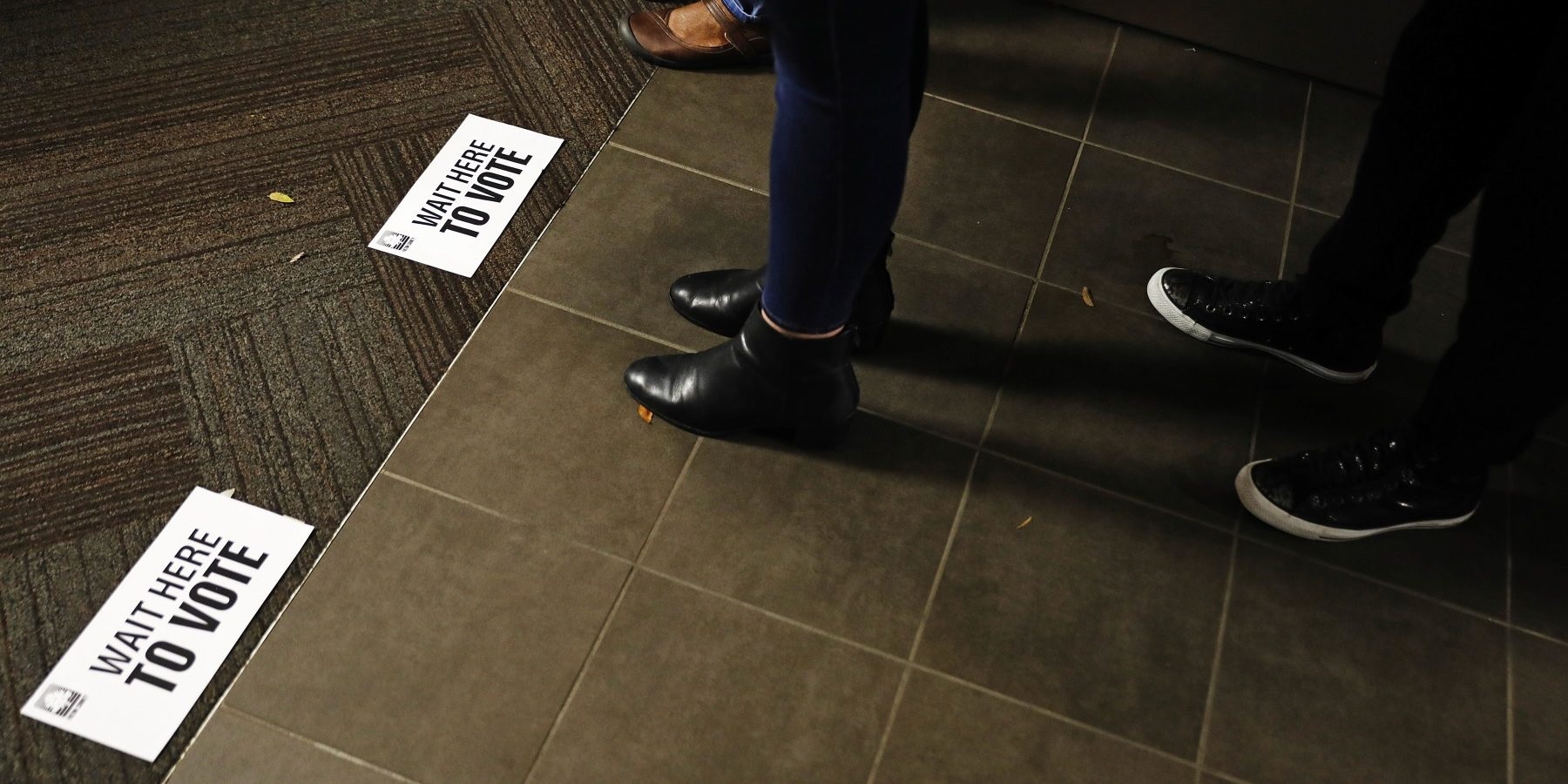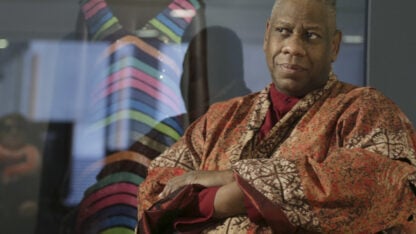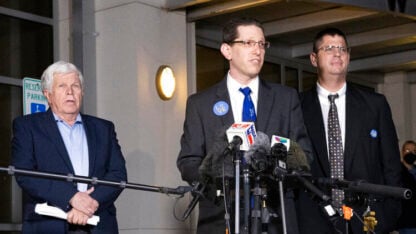Group Asks Judge to Restore 100,000 Georgians To Voting Rolls

Thursday’s hearing was part of a larger lawsuit, pitting Fair Fight Action against the Georgia secretary of state’s office. Fair Fight contends the state’s so-called “use it or lose it” voting policy is unconstitutional.
David Goldman / Associated Press file
The question facing U.S. District Judge Steve C. Jones is whether 100,000 Georgians who were removed from voting rolls earlier this week should be put back.
But Thursday afternoon in his downtown Atlanta courtroom, he appeared to be also wrestling with another question: whether that decision should be his.
It’s a case that centers on state law. But as lawyers for Fair Fight Action see it, it also involves an individual’s right to vote, as enshrined in the U.S. Constitution.
Jones on several occasions asked lawyers for Fair Fight if a decision in the case would mean a federal judge would be interpreting state law, particularly House Bill 316.
That’s the legislation – passed earlier this year by the Georgia Legislature – that extends the time period in which a Georgia voter can refrain from voting and have no contact with elections officials, and remain on the voting rolls.
Before the passage of House Bill 316, voters were placed on an “inactive” list after three years of having no contact, and then removed if they didn’t vote in consecutive general elections – a total of seven years. The new legislation extended the “no contact” period to five years, plus two election cycles, meaning nine years total.
Even before Thursday’s hearing began, the Georgia secretary of state’s office announced that it was restoring 22,000 voters who had been canceled on Monday night.
Fair Fight lawyers argue that 100,000 others who were also removed from voting rolls this week should also be added back, too. Those individuals had documented contact with elections officials between Jan. 1, 2010, and January 2012 – the two additional years given to voters as the result of HB 316.
Lawyers for the state of Georgia contend that those 100,000 voters were already on the “inactive” list prior to the passage of HB 316. As the law is written, the state argues, the new nine-year period does not extend to them.
Fair Fight lawyers countered that if nine years of “no contact” was what lawmakers determined to be the best way to manage the state’s voter rolls, than it should apply equally to everyone. They maintain that the 100,000 voters removed earlier this week may not realize their status has been canceled and would be unable to vote if they showed up to a polling place in March, May or next November.
At Thursday’s hearing, two witnesses took the stand.
Michael McDonald, a political scientist from the University of Florida, testified on behalf of Fair Fight. He was paid to compare two lists of Georgia voters – one the list of voters to be removed this week and the other the latest full list of voters. He identified both the 20,000 voters restored by the secretary of state’s office Thursday as well as the 100,000 voters who had made contact with elections officials between 2010 and 2012.
The state called Georgia elections director Chris Harvey to testify. With Harvey on the stand, lawyers representing the state examined the voting records of eight Georgians who were either removed this week or took action to avoid being removed. Some of those voters gave sworn affidavits that they never received notice they were about to be removed from the rolls and realized they were on the cancellation list only after being contacted by Fair Fight.
Under cross-examination, Harvey admitted that the secretary of state’s office had no way of telling whether voters actually “receive” notices, only that they were recorded as “sent.”
Fair Fight lawyers argued that this uncertainty is part of the reason why not receiving a response to mail should not be proof that someone has moved.
They also pointed to the secretary of state’s office’s restoration of 20,000 voters to the rolls on Thursday, as well as the return of nearly 300 others earlier this year, as evidence that the voter list cleanup process undertaken by the state was flawed.
In October, the secretary of state’s office announced it was planning to remove 313,000 voters from the rolls. The final process this week ended up moving nearly 309,000 to a “canceled” status, meaning that 4,000 voters had made some contact to regain “active” status.
Fair Fight is not challenging the removal of the roughly 189,000 voters whose statuses were changed to “canceled” Monday because they had moved or had died.
Thursday’s hearing was part of a larger lawsuit, pitting Fair Fight against the secretary of state’s office. Fair Fight contends the state’s so-called “use it or lose it” policy is unconstitutional.
Of immediate concern to Judge Jones are the more than 500 voters who were among those removed on Monday.
They are residents of House District 171, which is holding a special election on Jan. 28. Jones said he needed to make those voters aware of their status before that election’s late-December voter registration deadline.
It’s not clear when Jones will rule.








